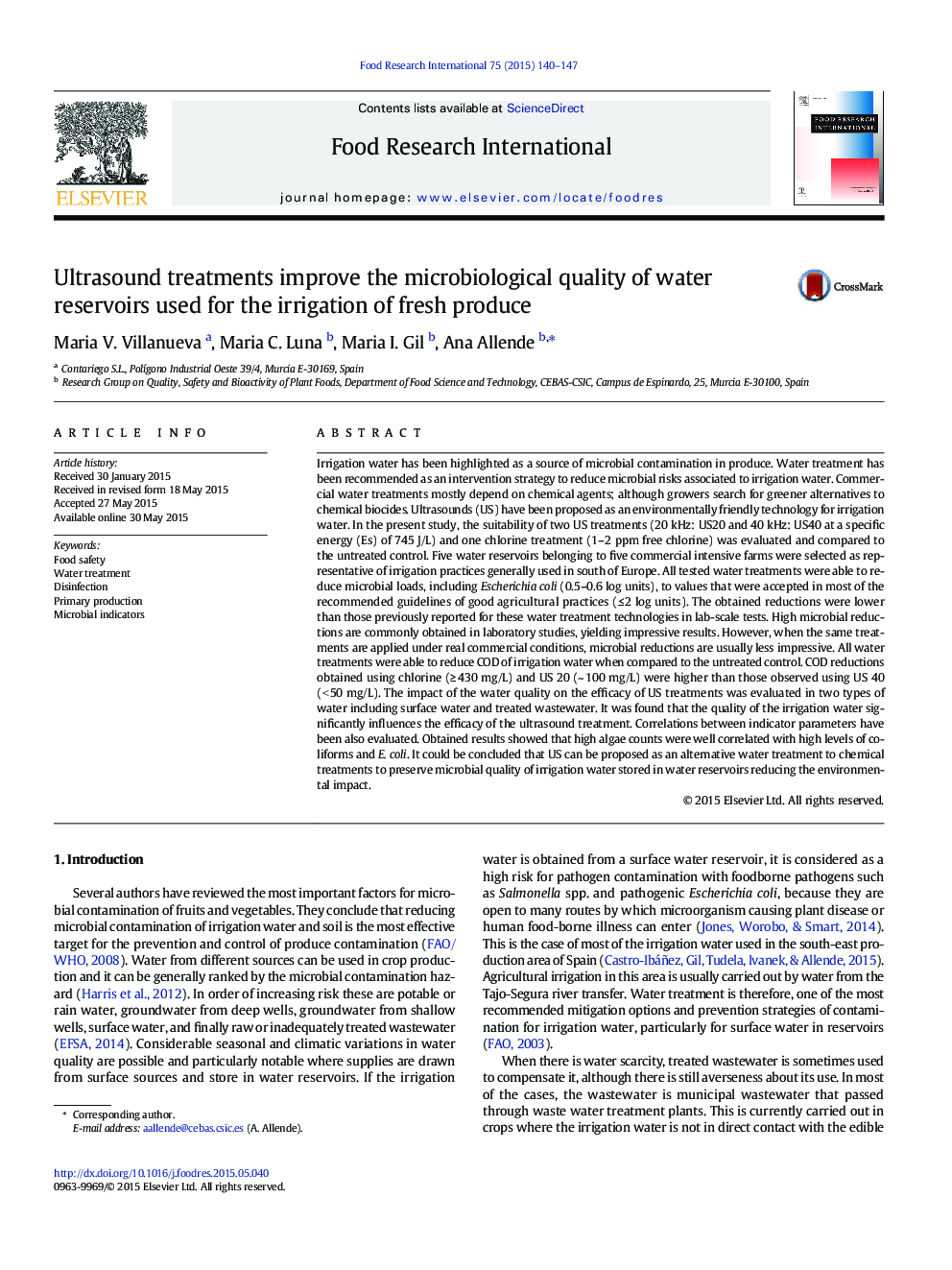| کد مقاله | کد نشریه | سال انتشار | مقاله انگلیسی | نسخه تمام متن |
|---|---|---|---|---|
| 6395334 | 1628471 | 2015 | 8 صفحه PDF | دانلود رایگان |
عنوان انگلیسی مقاله ISI
Ultrasound treatments improve the microbiological quality of water reservoirs used for the irrigation of fresh produce
ترجمه فارسی عنوان
درمان های اولتراسوند کیفیت میکروبیولوژیکی مخازن آب مورد استفاده برای آبیاری محصولات تازه را بهبود می بخشد
دانلود مقاله + سفارش ترجمه
دانلود مقاله ISI انگلیسی
رایگان برای ایرانیان
کلمات کلیدی
ایمنی مواد غذایی، تصفیه آب، ضد عفونی، محصول اولیه، شاخص های میکروبی،
موضوعات مرتبط
علوم زیستی و بیوفناوری
علوم کشاورزی و بیولوژیک
دانش تغذیه
چکیده انگلیسی
Irrigation water has been highlighted as a source of microbial contamination in produce. Water treatment has been recommended as an intervention strategy to reduce microbial risks associated to irrigation water. Commercial water treatments mostly depend on chemical agents; although growers search for greener alternatives to chemical biocides. Ultrasounds (US) have been proposed as an environmentally friendly technology for irrigation water. In the present study, the suitability of two US treatments (20 kHz: US20 and 40 kHz: US40 at a specific energy (Es) of 745 J/L) and one chlorine treatment (1-2 ppm free chlorine) was evaluated and compared to the untreated control. Five water reservoirs belonging to five commercial intensive farms were selected as representative of irrigation practices generally used in south of Europe. All tested water treatments were able to reduce microbial loads, including Escherichia coli (0.5-0.6 log units), to values that were accepted in most of the recommended guidelines of good agricultural practices (â¤Â 2 log units). The obtained reductions were lower than those previously reported for these water treatment technologies in lab-scale tests. High microbial reductions are commonly obtained in laboratory studies, yielding impressive results. However, when the same treatments are applied under real commercial conditions, microbial reductions are usually less impressive. All water treatments were able to reduce COD of irrigation water when compared to the untreated control. COD reductions obtained using chlorine (â¥Â 430 mg/L) and US 20 (~ 100 mg/L) were higher than those observed using US 40 (< 50 mg/L). The impact of the water quality on the efficacy of US treatments was evaluated in two types of water including surface water and treated wastewater. It was found that the quality of the irrigation water significantly influences the efficacy of the ultrasound treatment. Correlations between indicator parameters have been also evaluated. Obtained results showed that high algae counts were well correlated with high levels of coliforms and E. coli. It could be concluded that US can be proposed as an alternative water treatment to chemical treatments to preserve microbial quality of irrigation water stored in water reservoirs reducing the environmental impact.
ناشر
Database: Elsevier - ScienceDirect (ساینس دایرکت)
Journal: Food Research International - Volume 75, September 2015, Pages 140-147
Journal: Food Research International - Volume 75, September 2015, Pages 140-147
نویسندگان
Maria V. Villanueva, Maria C. Luna, Maria I. Gil, Ana Allende,
